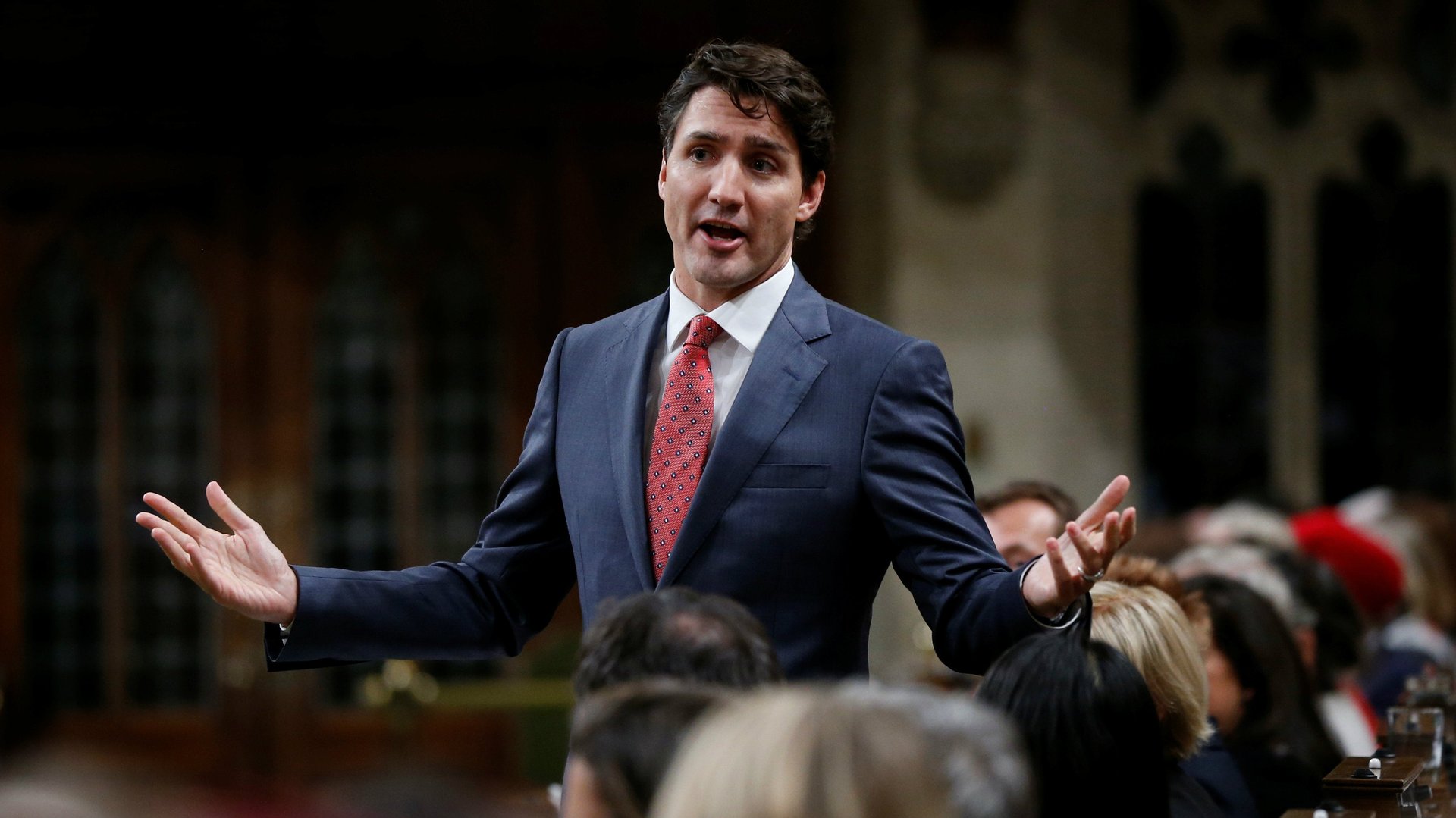The Paradise Papers will cast an uncomfortable spotlight on Trudeau’s tax avoidance plans
Canada’s prime minister, Justin Trudeau, won a majority with the country’s Liberal Party two years ago after pledging to slash taxes for the middle class while raising taxes on the rich. In July, he followed up by championing the closure of tax avoidance loopholes.


Canada’s prime minister, Justin Trudeau, won a majority with the country’s Liberal Party two years ago after pledging to slash taxes for the middle class while raising taxes on the rich. In July, he followed up by championing the closure of tax avoidance loopholes.
Trudeau faces a huge headache, then, over the involvement of his close aide, Stephen Bronfman, in tax avoidance schemes outlined in a financial data dump known as the Paradise Papers. Some 13.4 million documents were leaked from Appleby, a Bermuda-based law firm that specializes in offshore accounts, and a spinoff company, Estera. Although the tax avoidance schemes are legal, and offshore trusts are not subject to Canadian law, the disclosure could be a stumbling block for Trudeau’s plan to be a champion of closing tax loopholes.
According to the Paradise Papers, Bronfman (onetime chief fundraiser for the Liberal Party) and his investment firm Claridge moved millions offshore for former Canadian senator Leo Kolber and his family via the The Kolber Trust. The trust had been set up in 1991 by Leo Kolber, Claridge’s chairman at the time. Ironically, in Ottawa in the late 90s, Claridge lobbied against a law aiming to crack down on offshore funds.
Now retired, Leo Kolber was originally appointed to the Canadian Senate by Trudeau’s father, Pierre. Kolber’s home was also used in September 2016 for a Liberal Party fundraising event co-hosted by Bronfman.
Trudeau’s spokesperson, Cameron Ahmad, directed questions from CBC News and the Toronto Star to the Liberal Party. A Liberal Party spokesperson told the outlets that Bronfman serves on the party’s national board “as a volunteer” and that his role has “consisted strictly of assisting the board on matters related to building on the Liberal movement’s strong grassroots fundraising support, not policy decisions.”